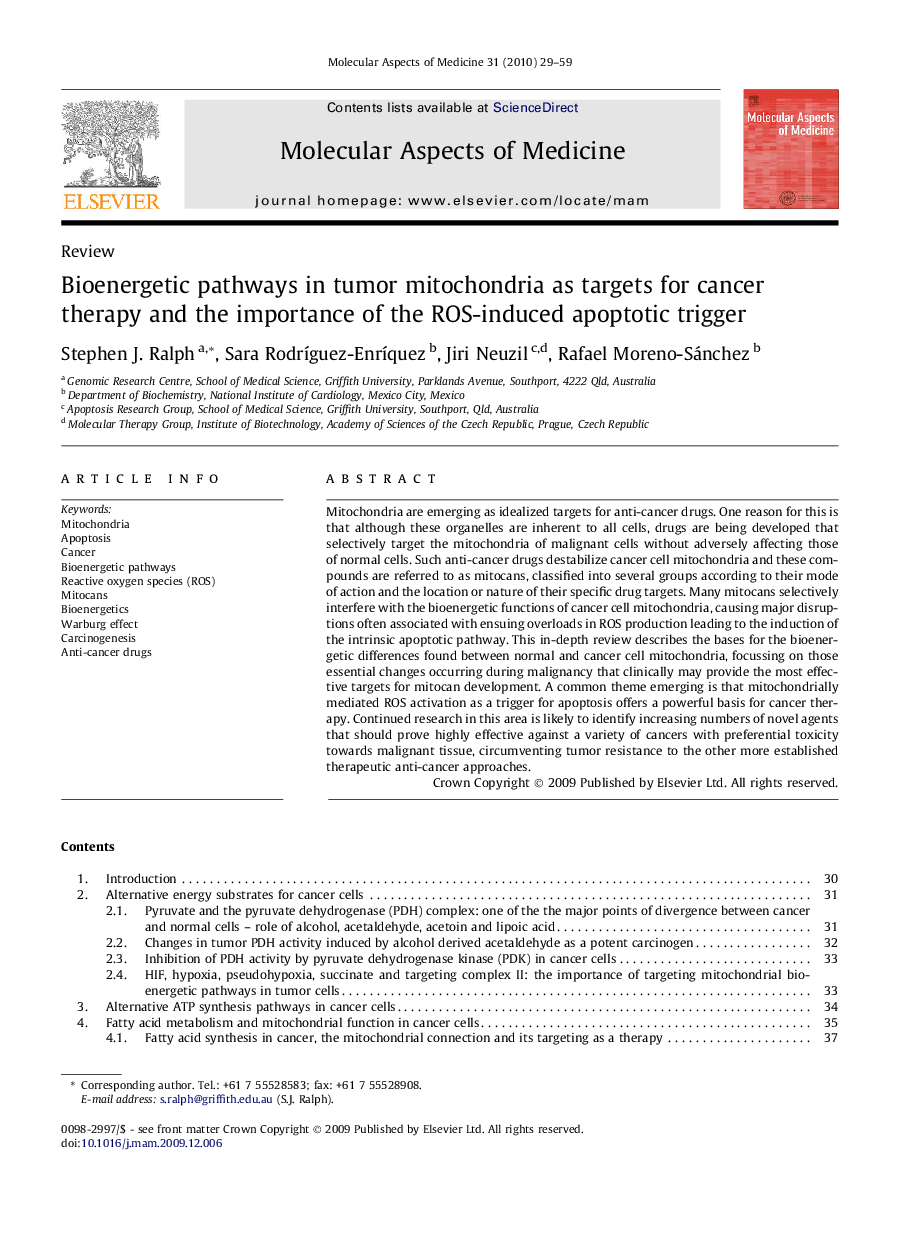| Article ID | Journal | Published Year | Pages | File Type |
|---|---|---|---|---|
| 1995880 | Molecular Aspects of Medicine | 2010 | 31 Pages |
Mitochondria are emerging as idealized targets for anti-cancer drugs. One reason for this is that although these organelles are inherent to all cells, drugs are being developed that selectively target the mitochondria of malignant cells without adversely affecting those of normal cells. Such anti-cancer drugs destabilize cancer cell mitochondria and these compounds are referred to as mitocans, classified into several groups according to their mode of action and the location or nature of their specific drug targets. Many mitocans selectively interfere with the bioenergetic functions of cancer cell mitochondria, causing major disruptions often associated with ensuing overloads in ROS production leading to the induction of the intrinsic apoptotic pathway. This in-depth review describes the bases for the bioenergetic differences found between normal and cancer cell mitochondria, focussing on those essential changes occurring during malignancy that clinically may provide the most effective targets for mitocan development. A common theme emerging is that mitochondrially mediated ROS activation as a trigger for apoptosis offers a powerful basis for cancer therapy. Continued research in this area is likely to identify increasing numbers of novel agents that should prove highly effective against a variety of cancers with preferential toxicity towards malignant tissue, circumventing tumor resistance to the other more established therapeutic anti-cancer approaches.
